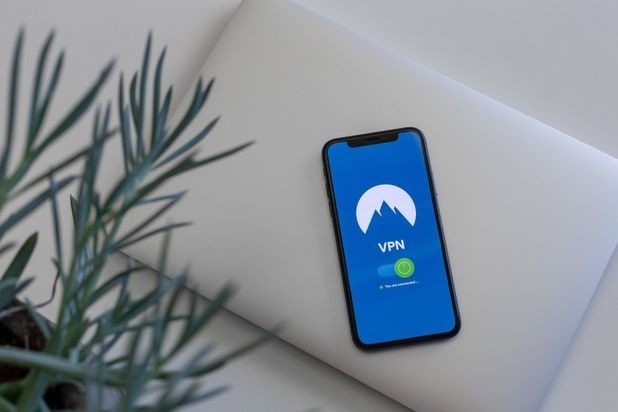5 Cybersecurity Tools Every Insurance Agent Should Be Using
5 min read
1. Password Manager
Do you find it difficult to remember the hundreds of passwords to all of your accounts? Yeah, me too. The number of accounts any given person has, has increased exponentially over the last 10 years. Because of that, most people find it convenient to just use the same password for every service. Well, the problem is that if one service gets hacked and your password is exposed, then whoever stole that data could essentially just login to any other service you use with that same password. This is obviously, not ideal.
One way to combat this is to use unique passwords for every account. This may sound impossible, until you consider that you don't need to memorize them all if you use a password manager. A password manager allows you to create and save usernames and passwords for all of your accounts. Then it's as simple as remember 1 password. The password to login to your secure password vault. Then once logged in, you can simply copy & paste or just click login and your username and password will be entered automatically into the site.
Here is a really great article by The Verge about How to use a password manager (and why you really should).
2. Adblocker
An adblocker is a peice of software, typically in the form of a browser plugin, that prevents advirtisements from appearing on websites. The reason you want this, is because many times creators and those looking to spread malware will use advertising networks to distribute their viruses, ransomware and cyrpto mining malware. All it takes is for you to click on one of these innocious looking advertisments and you could potentially be infected.
The other reason to use an adblocker is because advertisements make websites load much slower and they ruin the experience of websites. I don't know about you, but if I have to wait .0001 seconds longer than I want to for a website to load I will usually ditch it and move on.
Advertisements are annoying, no one ever reads or sees them and theres a large amount of them that are very nefarious. They are a cesspool for malware more often than not.
If you are using Google Chrome, Mozilla Firefox, Microsoft Edge or macOS Safari, I highly recommend uBlock Origin. It's one of the best free adblockers available as of today. If you are an Internet Explorer user, Adblock Plus is a good option.
-
To install uBlock Origin in Chrome go to: https://chrome.google.com/webstore/detail/ublock-origin/cjpalhdlnbpafiamejdnhcphjbkeiagm
-
To install uBlock Origin in Firefox go to: https://addons.mozilla.org/addon/ublock-origin/
-
To install uBlock Origin in Microsoft Edge go to: https://www.microsoft.com/store/p/app/9nblggh444l4
-
To install ublock-origin in Safari go to: https://safari-extensions.apple.com/details/?id=com.el1t.uBlock-3NU33NW2M3
-
To install Adblock Plus in Internet Explorer go to: https://eyeo.to/adblockplus/ie_install/
If you want even more detailed information about blocking those pesky ads and another nefarious web content, check out this great article by Malwarebytes, How to block ads like a pro.
3. Web Content Filter
So maybe you have taken my advice and are going to install an adblocker? That's great. You may or may not know that malicious advertisements are not the only way your computer could get infected by visiting a website. There is actually more ways to get infected without any ads. This type of content on websites can sometimes be blocked by using a Web Content Filtering service.
Web Content Filtering can look at things such as a websites category (shopping, social media, cloud storage, weapons, drugs, adult, chat, etc.) and it's reputation and determine if the content on the website is potentially harmful or malicious. Web Content filtering scans websites as you visit them and cross-references them with a list of known bad or risky websites. Some products will even analyze the content on the website to determine if it’s doing anything shady. If you come across one of these sites, it will prevent you from accessing it.
There are free and paid services out there that can be setup within minutes and will help protect you against a lot of the junk and malicious content on the internet. One service I recommend looking into is Cisco OpenDNS. They actually provide a free, preconfigured web content filtering service as well as a free but customizable content filtering service. The benefit of this service (and services like it) is they allow you to block specific types of unwanted content such as those listed above. This will not only greatly improve the speed at which websites load, but it will protect you from a lot of malicious and harmful content.
4. VPN (Virtual Private Network)
Are you the type of person who likes to take steps to protect their privacy? Do you want to limit your exposure to people sniffing around wireless networks while you're working on the road, at a coffee shop or at a conference or convention? Or maybe you just want to make extra sure that your internet connection truly is encrypted and safe from prying eyes. Well, then you should use a VPN.
VPN stands for Virtual Private Network and when you use a VPN you are creating secure and private access to the internet. VPN can help you hide your true location, let you browse anonymously, access geo-restricted content and much more. There are a number of features of VPN and I suggest you do a little googling to learn more about the specifics. The main point I want to make here is that using a VPN can protect you from untrustworthy wifi networks or someone snooping on public wifi at your local coffee shop.
If you are concerned about your privacy and where your data lives, do some research before selecting a VPN product.
Also know that using a VPN is not a guarantee that your sensitive information cannot be intercepted or that you can never be hacked while using one. This is just not true. Do your research.
5. Multifactor Authentication
This is both a tool and a process. There are tools such as the google authenticator that can generate random codes that are used to sign into your accounts. The websites themselves may even be able to send you a text message with a code that you can use to login. Multifactor authentication is also commonly referred to as: 2-step verification or two factor authentication.
If you have a google account, turn on 2-step verification immediatly. Facebook, Instagram, Twitter, LinkedIn and many other social networks now support multifactor authentication. Turn it on immediatly. Same with your bank accounts.
Use this website, Two Factor Auth, to look up websites and wheter or not they support multifactor authentication.
A Quick Note About Technology and Due Diligence
It goes without saying that, technology can be abused, manipulated and hacked, and the tools I mention above are no exception. Each one of the products mentioned has had their own share of vulnerabilities in their software or even security incidents in the past. It’s important to take these events into consideration when you decide which products you want to use or not use.
That’s why its so important to do your own due diligence. No one can determine for you what level of risk you are willing to take to safeguard your own personal data or your organization. I recommend first doing a google search on the company or product along with the word “security incident” or “data breach.” This will at least get you on the track of evaluating the company and their products and you can judge for yourself how honest or forthcoming they are when they have a security incident.



